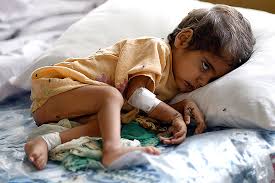Bangkok, August 22, 2024 — Thailand has reported its first suspected case of a new Mpox strain, Clade 1b, marking the second instance of this variant being identified outside of Africa. This development follows closely on the heels of Sweden’s detection of the same strain, raising concerns about the spread of this more virulent variant.
The Department of Disease Control in Thailand disclosed the suspected case on Wednesday, revealing that the patient had recently traveled from Congo, where the Clade 1b strain has been prevalent. Dr. Thongchai Keerati Hatthayakorn, Director General of the Department of Disease Control, confirmed that the individual is currently under quarantine in a hospital, while laboratory tests are being conducted to confirm the strain.
“The Department of Disease Control found a patient with suspected Clade 1 smallpox. The first person in Thailand traveled from Congo,” Dr. Hatthayakorn stated. While the strain has yet to be confirmed, health officials suspect it to be from Clade 1, a variant known for its higher virulence and mortality rate.
The Clade 1b variant, which is currently causing an outbreak across 14 African countries, has been responsible for over 14,000 cases and 524 deaths. According to the World Health Organization (WHO), Clade 1b has a case fatality rate of approximately 3.6%, with children being particularly vulnerable.
Thailand and Sweden are the first countries outside of Africa to detect this strain, highlighting the potential global spread of the virus. The WHO has recently declared a global health emergency in response to the emerging threat posed by the Clade 1b variant.
In neighboring Pakistan, a dozen Mpox cases have been reported, four of which have been confirmed as Clade IIb, the strain responsible for the 2022 outbreak that affected 116 countries. Meanwhile, the Philippines has also reported a new Mpox case, though it has been identified as the Clade IIb variant.
Mpox, also known as monkeypox, is a viral infection that affects both humans and animals. The disease typically begins with flu-like symptoms, including fever, headache, muscle pains, and fatigue, before progressing to pus-filled lesions on the skin. The illness can last between two to four weeks.
Transmission occurs through contact with an infected person, animal, or contaminated materials. Preventative measures include avoiding sexual contact with unfamiliar individuals, avoiding close contact with those exhibiting rashes or lesions, frequent hand washing, and not sharing personal items.
As the world continues to grapple with emerging infectious diseases, the detection of the Clade 1b Mpox variant in Thailand and Sweden underscores the importance of global vigilance and preparedness in managing public health threats.












